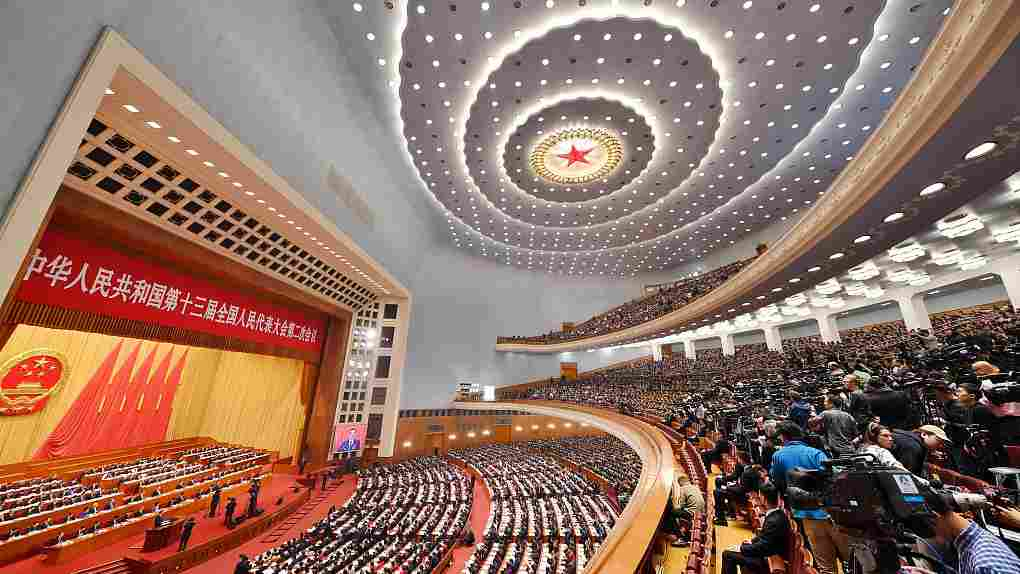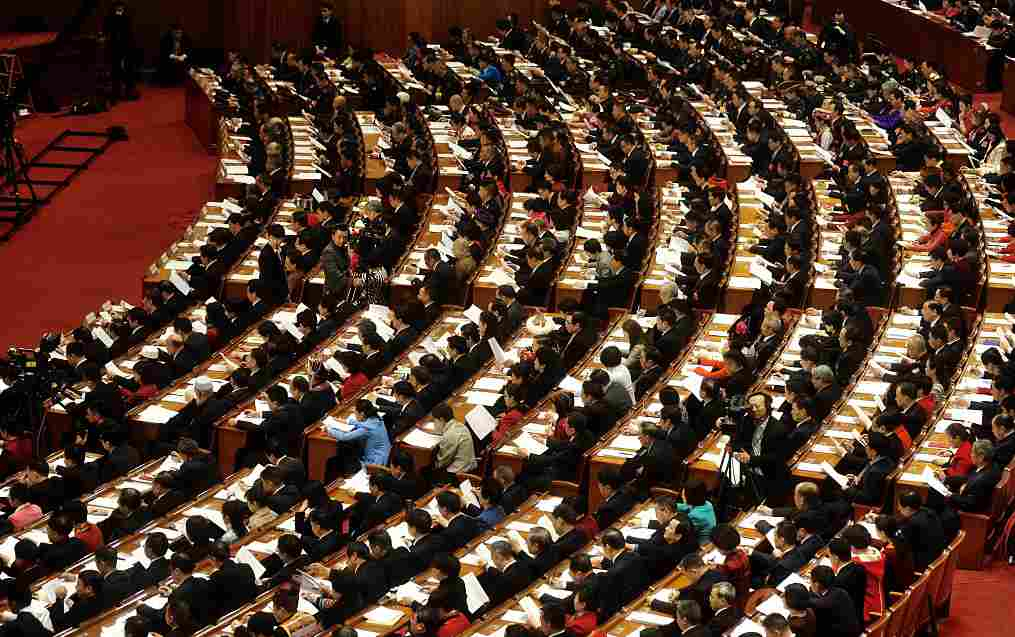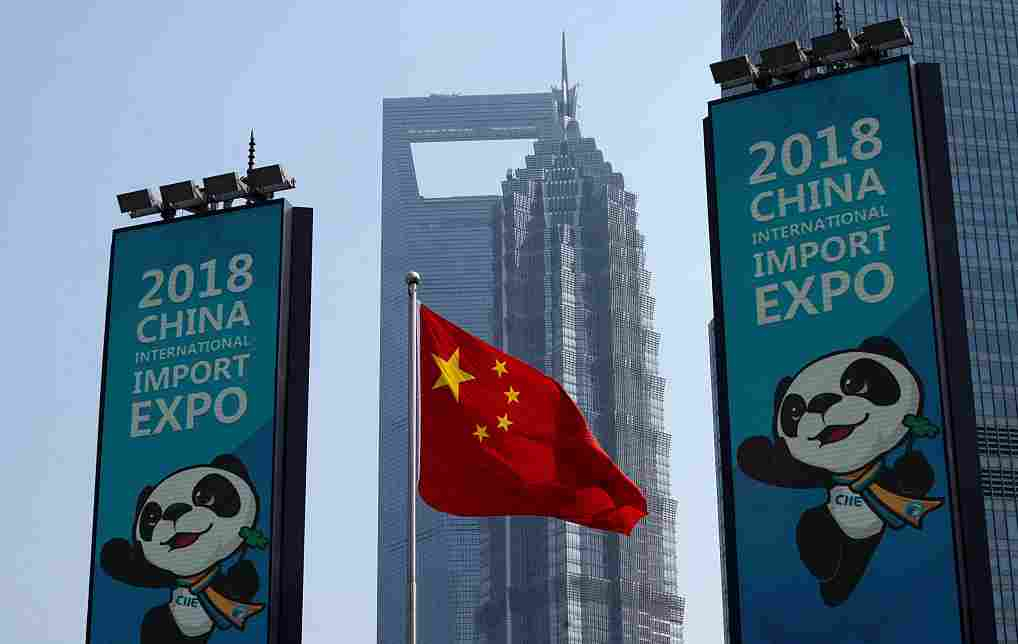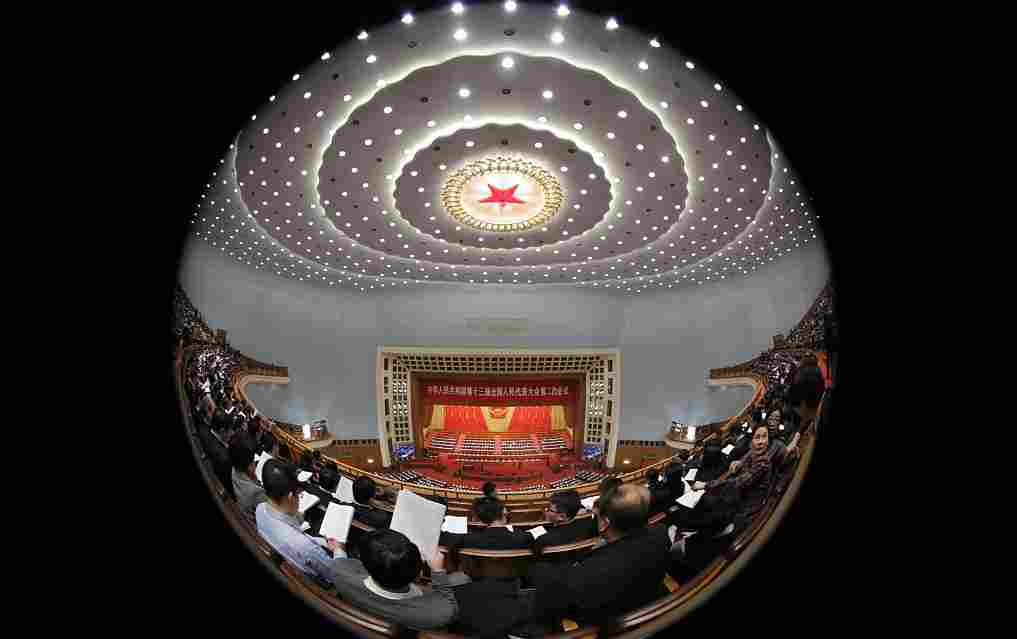
Domestic
12:37, 05-Mar-2019
Chinese Premier Li Keqiang delivers government work report
CGTN

The second session of the 13th National People's Congress (NPC) opened at the Great Hall of the People in Beijing on Tuesday. Over two weeks of policy discussions will follow, setting the country's targets for 2019.
Chinese Premier Li Keqiang delivered a government work report to lawmakers, reviewing the achievements of 2018 and looking at goals for the year ahead.
Economic development
Reflecting on what Li described as a complicated and challenging domestic and international environment of a kind rarely seen in many years, the Chinese premier said 2018 saw China forge ahead and overcome difficulties, with the main targets for economic and social development accomplished.
China's main economic indicators were all kept within an appropriate range, as gross domestic product (GDP) reached 90 trillion yuan (13.4 trillion U.S. dollars), marking annual growth of 6.6 percent.
The role of consumption in driving economic growth continued to grow, with the services sector's contribution to growth approaching 60 percent.

VCG Photo
VCG Photo
Li said that 13.61 million new urban jobs were created in 2018, with the surveyed unemployment rate remaining stable at around five percent.
Li noted that in 2018, China faced profound changes in the external environment, including setbacks in economic globalization, challenges to multilateralism, shocks in the international financial market, and especially China-U.S. economic and trade frictions.
Tackling potential risks was identified as one of China's “three critical battles” in 2018, and Li said that last year major risks were forestalled and defused.
The macro-economic leverage ratio trended toward a stable level, while the financial sector was generally stable.
The country continued to pursue balanced regional development with major projects, with progress made in boosting the coordinated development of the Beijing-Tianjin-Hebei region, the Yangtze Economic Belt and the Guangdong-Hong Kong-Macao Greater Bay Area.
Further opening-up
With 2018 marking the 40th anniversary of the policy of reform and opening up, China implemented a series of measures aimed at improving foreign access to the Chinese market.
The number of foreign enterprises in China grew by nearly 70 percent last year, while the overall tariff level was reduced to 7.5 percent from 9.8 percent, according to Li.
Li also highlighted last year's establishment of the Hainan Pilot Free Trade Zone, as well as the success of the inaugural China International Import Expo, which will be held again later this year.

VCG Photo
VCG Photo
Poverty relief
Poverty reduction has been identified as one of China's “three critical battles,” and Li said that precision poverty alleviation made significant progress last year.
The poor population in rural areas was reduced by 13.86 million, including 2.8 million people who were relocated from inhospitable areas.
Environmental protection
Stopping pollution is another of China's “three critical battles,” with pollution prevention and control strengthened in 2018, as PM2.5 levels continued to fall.
Efforts to fight pollution saw around 255.5 billion yuan (38.1 billion U.S. dollars) invested in 2018, an increase of 13.9 percent year-on-year.
Li also pointed to marked achievements made in ecological conservation in 2018, with clean energy widely promoted, and work to restore river and lake ecosystems ongoing.
Living standards
Li pointed to achievements made to enable China's population to share more fully and fairly in the benefits of reform and development, with pensions increased, development of education in rural areas stepped up and steady progress made in developing China's tiered diagnosis and treatment healthcare model.
The evaluation and approval process for new medicines was stepped up, with the prices of 17 cancer drugs slashed.
Projected targets
Premier Li laid out China's policy direction for economic and social development in 2019. The government has set the following projected targets for development this year:
- GDP growth of 6-6.5 percent; CPI increase of around three percent
- Over 11 million new urban jobs, a surveyed urban unemployment rate of around 5.5 percent, and a registered urban jobless rate within 4.5 percent
- A basic equilibrium in the balance of payments, and stable, better-structured imports and exports
- A macro leverage ratio that is basically stable, and effective prevention and control of financial and fiscal risks
- A reduction of over 10 million in the rural poor population
- Personal income growth that is basically in step with economic growth
Proposals for government work in 2019
Premier Li put forward proposals for the work of the government for the year ahead, while also announcing a series of policy adjustments.
The country will continue to pursue a proactive fiscal policy and a prudent monetary policy, implement an employment-first policy and strengthen coordination between these policies to keep major economic indicators within an appropriate range.
China will balance maintaining stable growth and guarding against risks to sustain healthy economic development in 2019, while the country will take firm, controllable and systemic action to defuse risks that have built up over the years.

VCG Photo
VCG Photo
China will also avoid adopting short-term strong stimulus policies, as they would undermine long term development or generate new risks, the report stated.
China's VAT rate for manufacturing and other industries will be reduced from 16 to 13 percent, while the rate for other sectors such as transportation and construction will be lowered from 10 to nine percent.
The central government will allocate 126 billion yuan (18.7 billion U.S. dollars) to fund poverty alleviation efforts in 2019, an increase of 18.9 percent from last year.
Greater support will be provided for further rural development, and 30 billion yuan (4.5 billion U.S. dollars) has been earmarked to support the process of granting urban residency to people with rural household registration living in urban areas.
For China's tech sector, industrial Internet platforms will be created, while Intelligent Plus initiatives will be expanded to facilitate the transformation and upgrading of the manufacturing sector.
The R&D sectors of emerging industries will see heavy investment, while support for research will be increased.
Environmental protection work will see China strengthen efforts to prevent and control pollution and boost environmental protection.
Li said 2019 will see sulfur dioxide and nitrogen oxide emissions cut by three percent, along with a continuous decline in PM2.5 density in key areas.
Strong action will be taken to treat three major sources of pollution: Industrial production, coal, and motor vehicles, and upgrades in heavy-polluting sectors to achieve compliance with standards will be enforced.

SITEMAP
Copyright © 2018 CGTN. Beijing ICP prepared NO.16065310-3
Copyright © 2018 CGTN. Beijing ICP prepared NO.16065310-3